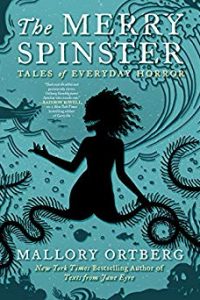Adrienne Martini reviews Scott Phillips
 Scott Phillips’s Rut is nearly impossible to talk about without also talking about the mode of its publication. Concord Free Press’ publishing model defies all of our expectations about what a publishing house should do, which is, ultimately, make money for itself and its editors and investors. Instead, Concord Free Press eschews the concept of financial gain. The books come out in limited runs – only 3,000 copies of Rut exist in this form – and are absolutely free. All the Press asks is that you shove a couple of dollars (or pounds or rubles or whatever) toward your charity of choice, then to go back to the site and let them know that you’ve done so.
Scott Phillips’s Rut is nearly impossible to talk about without also talking about the mode of its publication. Concord Free Press’ publishing model defies all of our expectations about what a publishing house should do, which is, ultimately, make money for itself and its editors and investors. Instead, Concord Free Press eschews the concept of financial gain. The books come out in limited runs – only 3,000 copies of Rut exist in this form – and are absolutely free. All the Press asks is that you shove a couple of dollars (or pounds or rubles or whatever) toward your charity of choice, then to go back to the site and let them know that you’ve done so.
It’s crazy talk, really, but it seems to be working. The books – four have been published prior to Rut – have generated between $45,000 and $50,000 for charity each, which is nothing to sneeze at. Since the press is ‘‘freed from the burden of profitability,’’ it can focus on producing interesting books that may or may not have wide commercial appeal.
Previous titles have gone on to more traditionally published editions. Stona Fitch’s Give + Take is now out from Thomas Dunne Books; Gregory Maguire’s The Next Queen of Heaven was published in October by Harper Collins. While the authors make nothing from their Concord Free Press editions, these subsequent publications help them earn some cash for their work. But, judged by the website, they seem to do this mostly for the warm and fuzzy feeling, which has its own intangible worth.
All of that being said, Rut is a story I would pay standard prices for. Phillips is no stranger to the book trade. The Ice Harvest is probably the best known of his work. He doesn’t generally write SF/F, however, which makes Rut even more of a surprise, so much so that I initially thought ‘‘Scott Phillips’’ was a pseudonym for a better known genre writer like Stephen King or, even, John Scalzi.
With Rut, a dystopian yarn set in Gower, Colorado in the mid-2000s well after the environmental tipping point has come, Phillips does what Heinlein used to do so well, which is make his future seem lived in. He doesn’t explain every last detail of the technology that keeps the world running in 2050; instead he shows us through his characters what it is like to live with that technology and in a landscape full of toxic waste, genetic mutations, and limited fossil fuels.
It wouldn’t work if his characters weren’t so dang interesting in their own right. Bridget is a scientist from the big city who comes to Gower to study amphibians; Buddy is the small town mayor who is used to being the biggest fish in any pond; and young Cole is a high school kid trying to figure out who he is and where he fits in, despite the bleakness (to our eyes) of his world.
What Phillips does well is weave these storylines (and more) around each other, crafting a tale that captures the author’s smart-assed voice without detracting from his character’s unique voices. Along the way, he also presents a plausible future in which we’ve lost control of so many aspects of life we take for granted, like predictable weather and marginally regulated pharmaceuticals.
It’s quite a book, frankly, despite its non-existent cost and low-profile.







Pingback:Tweets that mention Locus Online Reviews » Adrienne Martini reviews Scott Phillips -- Topsy.com